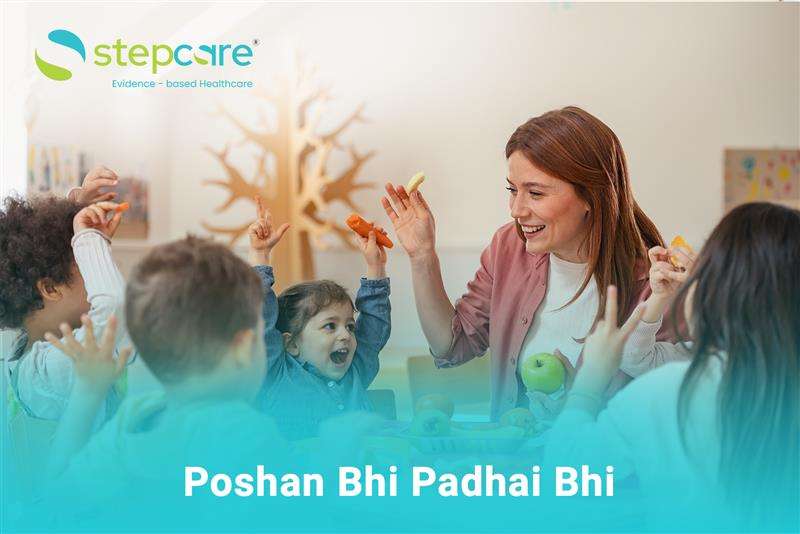- Stepcare’s mission is to help you achieve optimal health and well-being, not just for your benefit but for ours too - because we believe that a healthy you is a win-win situation for both you and Stepcare

Stepcare delivers personalised, evidence-based, and preventative healthcare that prioritises patient well-being and promotes healthier living.
G-01, Ground floor, Brigade IRV Center, Nallurhalli, Whitefield, Bengaluru, Karnataka, 560066
Subscribe for newsletter

Every September, India observes Rashtriya Poshan Maah, a nationwide campaign under the Poshan Abhiyaan to improve awareness and action around nutrition. The theme for Poshan Maah 2025 highlights a powerful message: “Poshan Bhi Padhai Bhi”—which translates to “Nutrition along with Education.”
This initiative recognizes that good nutrition is not separate from learning—it is the very foundation on which education stands. A hungry child cannot learn effectively, and a malnourished child struggles to reach their full potential in school and life. By combining nutrition with early education, the campaign envisions a future where children grow not only physically strong but also intellectually capable.
1. The Brain Needs Nourishment to Learn
The first 1,000 days of life (from conception to two years of age) are critical for brain development. Nutrients such as iron, iodine, protein, vitamin A, and omega-3 fatty acids play a crucial role in enhancing memory, attention span, and learning abilities. Malnutrition during this period can cause irreversible learning delays.
2. Hunger Affects Concentration
A child who comes to school without eating is more likely to feel weak, irritable, and distracted. In classrooms, this translates into low participation, reduced curiosity, and poor academic performance. Regular, balanced meals help improve focus and attendance.
3. Education Reinforces Healthy Choices
Education does not just build literacy; it shapes awareness and behaviour. A child who learns about healthy foods in school is more likely to make better dietary choices, which can help break the cycle of malnutrition across generations.
To make Poshan Bhi Padhai Bhi a reality, Anganwadi nutrition programs and schools play a central role. Together, they provide nourishment while also strengthening children’s learning and growth through a wide range of services such as:
One of the most innovative aspects of Poshan Maah 2025 is the introduction of Nutri-Gardens in schools and communities. These gardens allow children to:
The simple act of growing spinach or carrots in a school garden can become a lesson in biology, nutrition, and environmental science all at once.
Poshan Bhi Padhai Bhi is not limited to classrooms. Families and communities play a vital role in ensuring the success of nutrition and education in India:
This collective effort fosters an ecosystem where the child’s health and learning are the responsibility of everyone.
The government has also introduced the Poshan Tracker App, which helps monitor children’s growth, track the delivery of supplementary nutrition, and provide real-time data. With these tools, frontline workers can ensure no child is left behind.
Technology, when combined with community participation, makes nutrition and education measurable, accountable, and more impactful.
As individuals, we can also contribute to the vision of Poshan Bhi Padhai Bhi. Some simple steps include:
Volunteer or Donate: Support Anganwadi with seeds, books, or nutrition-related resources.



